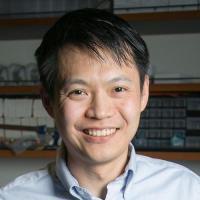- Undergraduate
Bachelor's Degrees
Bachelor of ArtsBachelor of EngineeringDual-Degree ProgramUndergraduate AdmissionsUndergraduate Experience
- Graduate
Graduate Experience
- Research
- Entrepreneurship
- Community
- About
-
Search
All Thayer Events
Special Seminar: Traditional and Computational Development of Fluorescence Imaging Tools for Neuroscience
Mar
08
Wednesday
12:00pm - 1:00pm ET
Online
ZOOM LINK
Meeting ID: 951 4202 1459
Passcode: 113629
Modern basic research in neuroscience aims to dissect neural activity from genetically identifiable neuron populations within dense neural circuits. Such research has relied increasingly on tools that perform optical imaging and optical stimulation. In this area, my lab develops a diverse toolbox that employs multiple engineering disciplines simultaneously.
In this talk, I will highlight our recent gains in protein engineering, optical microscopy, and data analysis. The protein tools will attempt to enable multi-channel optical experiments by increasing spectral separation between fluorescent protein sensors and actuators. The microscopy tools will attempt to support fast volumetric imaging experiments that accurately capture neural activity. The data analysis tools will attempt to find neurons and calculate their neural activity from the large datasets resulting from optical imaging experiments quickly and accurately. Lastly, this talk will touch on the future of the protein engineering pipeline seen through the lens of protein tools in neuroscience.
About the Speaker(s)
Yiyang Gong
Assistant Professor of Biomedical Engineering, Duke University

Yiyang Gong obtained his BS in electrical engineering from the California Institute of Technology. He then obtained his MS and PhD in electrical engineering from Stanford University, training with Prof. Jelena Vuckovic on plasmonic and photonic crystal optical devices. He trained with Prof. Mark Schnitzer at Stanford University as a postdoc in biology, developing genetically encoded voltage sensors that are advancing the current generation of neuroscience experiments. His current work focuses on imaging neural activity with a combination of engineered protein sensors, optical microscopes, and computational algorithms. His work has been supported by the Beckman Young Investigator Award, the BRAIN initiative, NIH New Innovator Award, NSF CAREER Award, Sloan Fellowship, and Vallee Young Investigator Award.
Contact
For more information, contact Ashley Parker at ashley.l.parker@dartmouth.edu.
